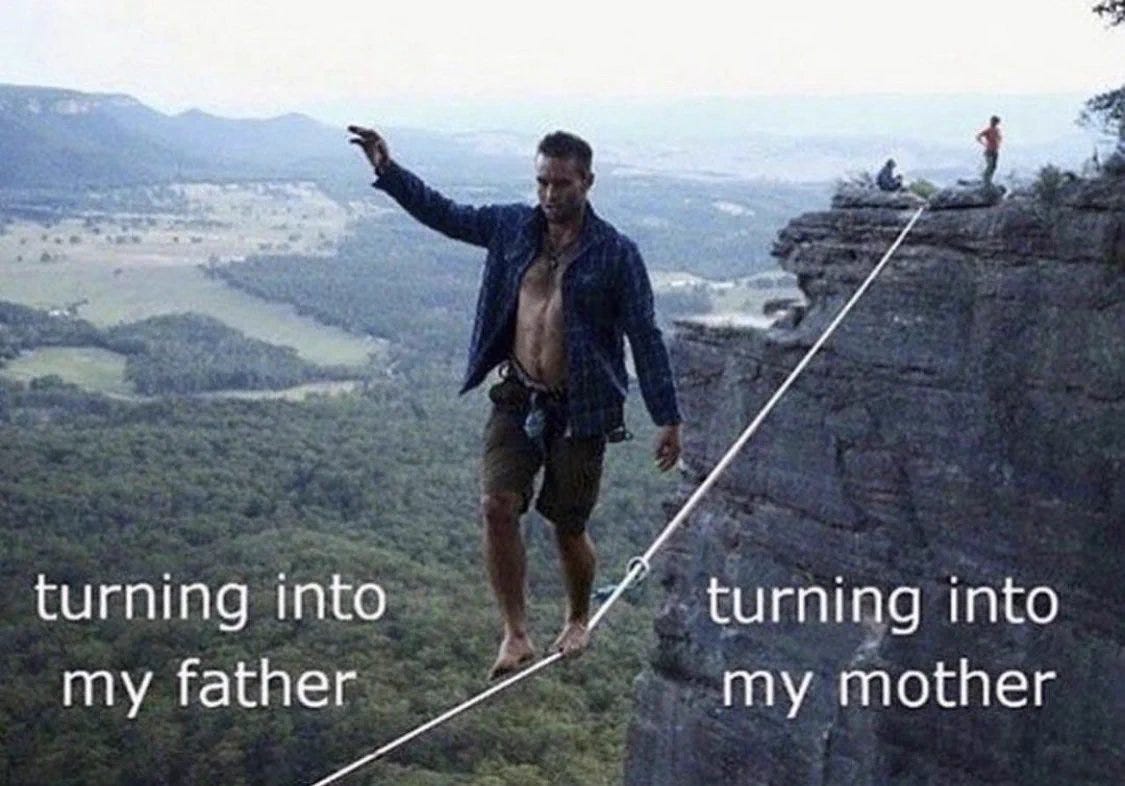I met over dinner with some of my friends after weeks apart. More than an innocent dinner, it turned into a war bulletin of the Christmas season back home with our families. How many emotional injuries? Any broken hearts or bruised egos? Any soul scratches? I quickly realized that we looked exactly like a group of mothers at the park discussing how their children were faring. What’s funny is, none of us sitting at that table have children yet. We, however, do have parents, and as you approach your 30s, that feels somewhat akin to having kids.
The realization struck me that our conception of time, growth, and age, call it what you will, is far from linear or measurable and therein lies the biggest challenge of our lives. You may still feel like a child due to premature parentification, or you may be thinking of ways to parent yourself or to become a parent to an actual other human being. Then, you discover that your parents need you more than you need them. It's painful to see those you've relied on most turn into fragile beings, but it’s also rewarding to realize how much they trust you to take the reins.
Christmas is essentially examination season for your family relationships. Thankfully, this year it felt as though I was merely observing an exam I had already taken. I passed it and do not wish to retake it. Precisely because I no longer carry major issues or resentment towards them, I manage to accept that I have become a lot like both of my parents. In this similarity lies both my challenges and opportunities to improve, and I must consciously choose how to carve out my personal space and individuality that goes beyond my parents. Don't we all morph into our parents if we are not careful enough, or if we stray too far from their ideals?
After dinner, we all tried to discern what concerns, fears, and hopes guided our parents, as if we were analyzing rebellious teenagers. Once my friends left, I bypassed the dishes, grabbed a piece of paper, and launched into an exercise. I wrote on one side how I resemble my mother, and on the other, how I resemble my father. How have these similarities become obstacles or advantages? "Too generous, like your father," my mother notes. "Too proud, like your mother," my father counters. My mother always reassures me, "Don't worry, one day you'll be as obsessed with cleanliness as I am. It's in your DNA." So, when I notice the untidiness of my desk, I breathe a sigh of relief as it symbolizes my freedom from resembling her. Becoming an adult seems to be like walking a tightrope. What if understanding our parents was the key to knowing ourselves? As if the more you try to ignore their individuality, the more you hinder your own self-discovery.
Lastly, I contemplated how our parents influence our choice of partners, whether consciously or unconsciously. As philosopher Alain De Botton puts it, 'We want to repeat our past, but give it a different ending.' Especially in years past, your familial background determined who you could aspire to marry. As these ties loosen, can we shift our focus from our partners’ material inheritance to their emotional legacy? Aren't we, when choosing a partner, also choosing their family indirectly? It seems wise to choose someone who understands the impact their parents have had on their formation. It's a sign of courage and self-awareness, showing that they have discovered their own roadmap and have the humility to use it.
Vilma Djala





I have the audacity to think that I've analyzed my parents and myself to a sufficient event that I can deliberately take traits from them, and traits that are original to me. The big question remains: but will I still have the opportunity to become what I would wish to become?
Great piece Vilma, spot on I think (provided one is blessed with parents that are not utterly mad and out to destroy their offspring)
And extremely well written too :) xxx Natasha